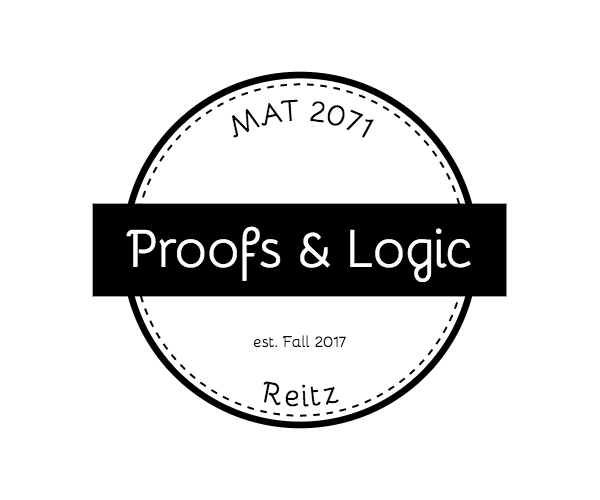Written work, Due Tuesday, October 17th, in class:
Chapter 4 p.100: 1, 6, 7, 15, 16
Chapter 5 p.110: 1, 4, 9, 20*
Odd problems are worth 4 points, even problems worth 8 points.
* (Chapter 5 Problem 20 is optional – solutions will receive extra credit)
WeBWorK – none
OpenLab – none
© 2025 2017 Fall – MAT 2071 Proofs and Logic – Reitz
Theme by Anders Noren — Up ↑




Leave a Reply